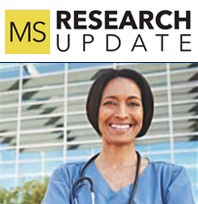Betaseron® (interferon beta-1b)
FDA-Approved Medications: New Data on Previously Approved Medications
Company: Bayer
- Dose: 25 mg (1 mL) self-administered subcutaneously (starting at 0.0625 mg (0.25 mL), then increasing over six weeks to 25 mg)
- Approved in 1993 for RMS
Previous: Copaxone® (glatiramer acetate) | Next: Rituxan® (rituximab)
Betaseron® (interferon beta-1b) is the first disease-modifying therapy (DMT) to receive FDA approval for the long-term treatment of MS. It is a synthetic version of the human interferon beta. Interferon beta balances the expression of pro- and anti-inflammatory agents in the brain and restricts the flow of inflammatory neurons through the bloodbrain barrier. This slows MS disease progression by reducing neuron inflammation, and is believed to increase production of nerve growth factor.
Betaseron secured FDA approval for relapsing forms of MS (RMS) after a doubleblind, placebo-controlled study. The 372 patients with RMS in the study had a baseline mean Expanded Disability Status Scale (EDSS) of 5.5, indicative of severe disability that impedes daily activities. Participants also were required to have had at least two exacerbations in the two years before the trial, but with no exacerbations in the preceding month. The patients were randomized at a nearly 1:1:1 ratio to Betaseron 0.25 or 0.05 mg or placebo, self-administered subcutaneously every other day for two years.
At endpoint, the mean annual exacerbation rate was 0.9 among patients who received Betaseron 0.25 mg, compared with 1.14 in the Betaseron 0.05 mg group and 1.31 with placebo. An exacerbation was defined as the appearance of a new clinical sign/symptom or the clinical worsening of a previous sign/symptom that had been stable for at least 30 days. The exacerbation had to persist for at least 24 hours to be considered as a true relapse.4848
New data support early initiation and long-term use of Betaseron in individuals who develop a clinically isolated syndrome (CIS). A CIS is a preliminary episode of nerve inflammation or damage that may develop into clinically definite MS (CDMS) sometime in the future. A recently reported study followed 468 individuals who received Betaseron or placebo, either immediately after or within two years of a CIS episode. Participants in the placebo group were switched to Betaseron after two years, or were switched immediately after they developed CDMS.
Fifteen years after initial randomization, 261 of the initially enrolled patients completed a comprehensive clinical and MRI examination, and information was available on six additional study enrollees who had died. Risk of relapse in the early-treatment group (individuals who received Betaseron from the start) was 18.9 percent lower than that of the placebo/delayed-treatment group. Also, the risk of conversion to CDMS was 30.5 percent lower in the immediate-treatment group versus the delayed-treatment group.17
Meanwhile, another team of researchers sought to determine whether extended beta interferon therapy, such as with Betaseron, increases survival in MS. Researchers followed 5,989 patients registered at two MS clinics in British Columbia and France who were diagnosed with RMS and treated with beta interferon. The patients had never received an immunosuppressant or DMT before the study period. A maximum of 18 years of data were reviewed for each person, and most of the 742 individuals who died during the study were matched with controls from the two databases.
After a series of mathematical analyses, the researchers found that treatment with beta interferon for three years or more was associated with increased survival in patients with RMS. However, the investigators did not find an association with extended survival for beta interferon treatment that lasted between six months and three years.18
Previous: Copaxone® (glatiramer acetate) | Next: Rituxan® (rituximab)

